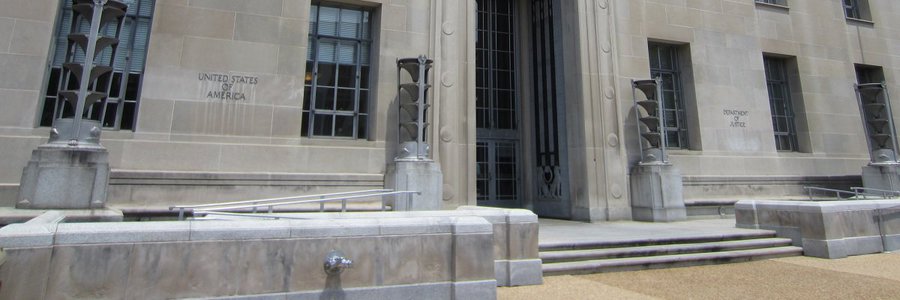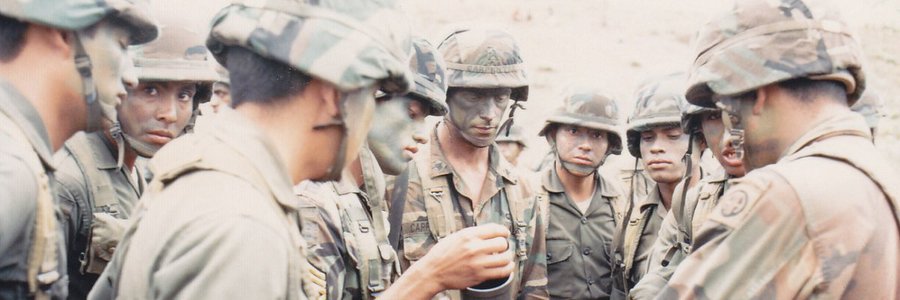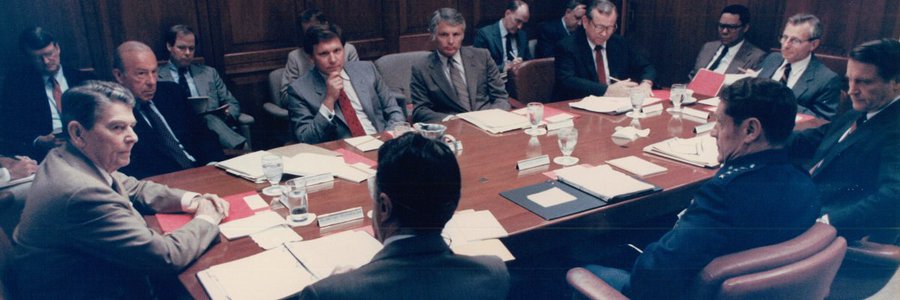Iran-Contra, October Surprise and Reagan's Wrongs
The Iran-Contra scandal saw Congress’ restrictions on foreign arms sales circumvented by high level politicians, military and intelligence officers who were aided by smugglers and traffickers. Many of the details have never been released. By signing onto a FOIA saying that these documents are in the public interest, you can help change that.
This project will collect new materials with FOIA and examine them to understand who really did what, who knew what and what their motives were. It will also explore other scandals and allegations involving the Reagan campaign and administration, including the October Surprise, Debategate, Inslaw and Wedtech sandals and the dropped investigation into MCA Records. The goal is to explore history through primary documents, not to demonize or vilify those involved.
Those involved and investigated include:
-
Elliott Abrams - former American diplomat and lawyer who served in the Ronald Reagan and George W. Bush administrations
-
Richard Armitage - 13th United States Deputy Secretary of State at the State Department. He has acknowledged that he publicly released the classified information that Valerie Plame Wilson was a secret agent for the CIA
-
George Bush - Vice President, Director of Central Intelligence and President of the United States
-
William Casey - Director of Central Intelligence
-
Carl Channell - Conservative fund raiser
-
Duane Clarridge - Senior operations officer for CIA, head of Latin American division
-
Thomas Clines - Senior CIA officer
-
Edwin Corr - U.S. Ambassador to several Latin-American nations
-
Robert Earl - Marine lieutenant colonel and a deputy to Oliver North at the National Security Agency during the early 1980s.
-
Joseph Fernandez - CIA station chief in Costa Rica (operating under the pseudonym Tomás Castillo) and a figure in the Iran-Contra Affair.
-
Alan Fiers, Jr. - President Reagan’s Chief of the Central Intelligence Agency’s Central American Task Force from October 1984 until his retirement in 1988.
-
Robert Gates - Served for 26 years in the Central Intelligence Agency and the National Security Council, and was Director of Central Intelligence under President George H. W. Bush.
-
Clair George - CIA officer in the clandestine service who oversaw all global espionage activities for the agency in the mid-1980s.
-
Donald Gregg - worked for the Central Intelligence Agency for 31 years. He was a National Security Council advisor (1979–1982) and National Security Advisor to U.S. Vice President George H. W. Bush (1982–1989).
-
Albert Hakim - Iranian-American businessman and a figure in the Iran-Contra affair who participated in an aerial reconnaissance program run by CIA and Imperial Iranian Air Force from bases inside Iran against the Soviet Union.
-
M. Charles Hill - Senior adviser to George Shultz, Henry Kissinger, and President Reagan, as well as Boutros Boutros-Ghali, the sixth Secretary-General of the United Nations.
-
Edwin Meese III - Served within the Reagan Presidential Transition Team and the Reagan White House, eventually rising to hold the position of Attorney General, from which he resigned while under investigation from a special prosecutor.
-
Robert McFarlane - National Security Advisor to President Reagan
-
Richard Miller - Communications consultant who helped raise money for the Nicaraguan rebels and plead guilty to a conspiracy to defraud the U.S.
-
Oliver North - National Security Council staff member alleged by John Kerry to have created a privatized Contra network that attracted drug traffickers looking for cover for their operations, then turned a blind eye to repeated reports of drug smuggling related to the Contras, and actively worked with known drug smugglers such as Panamanian dictator Manuel Noriega to assist the Contras.
-
Nicholas Platt - American diplomat to Pakistan, Philippines, Zambia, and as a high level diplomat in Canada, China, Hong Kong, and Japan.
-
John Poindexter - Deputy National Security Advisor and National Security Advisor for President Reagan, convinced of multiple felonies as a result of Iran-Contra.
-
Ronald Reagan - President of the United States
-
Donald Regan - President Reagan’s Secretary of the Treasury and White House Chief of Staff
-
Richard Secord - Took part in CIA’s secret war in Laos, involved in Iran-Contra and one of its precursors, Operation Tipped Kettle.
-
George Shultz - President Reagan’s Secretary of State, known for opposition to the Iran-Contra scandal.
-
Paul Thompson - Navy commander who was detailed to the National Security Council staff, military assistant to National Security Adviser Robert C. McFarlane.
-
Caspar Weinberger - President Reagan’s Secretary of Defense, claimed to be opposed to the sale but participated in the transfer of United States Hawk and TOW missiles to Iran during the Iran–Contra affair. He was pardoned by President George H. W. Bush, who was Reagan’s vice president during the scandal.
17 Articles

FBI investigation shows the DOJ’s surprising tolerance for leaks … when they come from the DOJ
On April 14, 1987 the Village Voice once again made itself the target of a Federal Bureau of Investigation leak investigation when it published an article based on a leaked memo apparently confirming an Iran-Contra cover-up, amidst leaks and counter-leaks by whistleblowers and politically maneuvering Reagan Administration officials.

CIA archives show ties between the Honduran Border Caravan and the Reagan Administration
For years, the Central Intelligence Agency was involved in funding and organizing anti-communist movements in Honduras, with deadly results. Files uncovered in the CIA archives illustrate how modern political unrest in the country - including the so-called “migrant caravan” - has its ties directly back to U.S. foreign policy.

The CIA’s plan under Reagan: more covert action, more excessive secrecy
The Central Intelligence Agency’s declassified archives include several copies of one of its long-term plans, produced in 1980 and originally classified SECRET. The copies of the Summary Report reveal two things about the Agency: it was, in the immediate lead-up to the Reagan administration, determined to expand its scope of operations and collections, and seemingly to increase its covert activities, and it’s either negligent or incompetent when it comes to figuring out what’s actually classified and deciding what files can be released.
124 Requests
Completed
Emma North-Best sent this request to the Federal Bureau of Investigation of the United States of America
Completed
Emma North-Best sent this request to the Federal Bureau of Investigation of the United States of America
Rejected
Emma North-Best sent this request to the Central Intelligence Agency of the United States of America
Rejected
Emma North-Best sent this request to the Federal Bureau of Investigation of the United States of America
Fix Required
Emma North-Best sent this request to the Drug Enforcement Administration of the United States of America
Completed
Emma North-Best sent this request to the Federal Bureau of Investigation of the United States of America